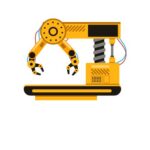Manufacturing
The Manufacturing career cluster involves the production of goods and products through various processes, technologies, and systems. This cluster covers a wide range of industries, from traditional manufacturing and production to advanced technologies and automation. Careers in manufacturing can range from hands-on production and assembly roles to engineering and management positions.
Career Options
The Manufacturing career cluster offers diverse opportunities to create, build, and innovate products that impact various industries. If you’re interested in working with your hands, solving complex problems, and contributing to the production of goods, exploring careers in manufacturing could lead to a rewarding and impactful career path. Here’s an in-depth overview of the key components and careers within the Manufacturing career cluster, tailored for high school students:
Professionals in this area work directly on the production floor, assembling, fabricating, and manufacturing products. This includes roles such as assemblers, machine operators, and production workers.
Engineers and designers create and develop products, machines, and systems used in manufacturing. This includes roles such as mechanical engineers, industrial designers, and manufacturing engineers.
Professionals in this area manage the movement of materials, products, and resources throughout the manufacturing process. This includes roles in inventory management, logistics coordination, and procurement.
Maintenance technicians are responsible for maintaining and repairing machinery and equipment used in the manufacturing process.
Welders and metalworkers work with metals to create structures, components, and products.
Computer Numerical Control (CNC) machinists operate and program CNC machines to create precision parts and components.
Automation engineers design and implement automated systems, including robotics, to streamline manufacturing processes.
Experts in additive manufacturing use 3D printing technology to create products and prototypes.
This field involves studying the properties and applications of materials used in manufacturing, such as metals, polymers, and composites.
Industry-Recognized Credentials (IRCs)
Industry Recognized Credentials (IRCs) can provide high school students with valuable skills and recognition in the Manufacturing career cluster, enhancing their employability and opening doors to internships, entry-level jobs, and further education. Here are some IRCs that high school students can consider pursuing in the Manufacturing cluster:
NIMS offers certifications in various machining and metalworking areas, such as CNC operations and precision measurement.
AWS offers certifications for different welding processes and techniques, validating welding skills.
SolidWorks is a popular CAD software used in engineering and design. SolidWorks certifications validate proficiency in using the software.
MSSC offers certifications in areas such as production, quality practices, and safety, relevant to manufacturing roles.
AutoCAD is widely used for technical drawings and design. AutoCAD certifications demonstrate proficiency in drafting and design.
This certification focuses on industrial maintenance skills, including electrical systems, mechanical systems, and automation.
This certification covers core competencies in manufacturing production processes and is recognized by the Manufacturing Skills Standards Council (MSSC).
If interested in HVAC systems used in manufacturing facilities, pursuing HVAC technician certification can be valuable.
Mechatronics combines mechanical and electrical engineering. Certification in mechatronics is relevant for automation and robotics roles.


















Get involved!
Comments